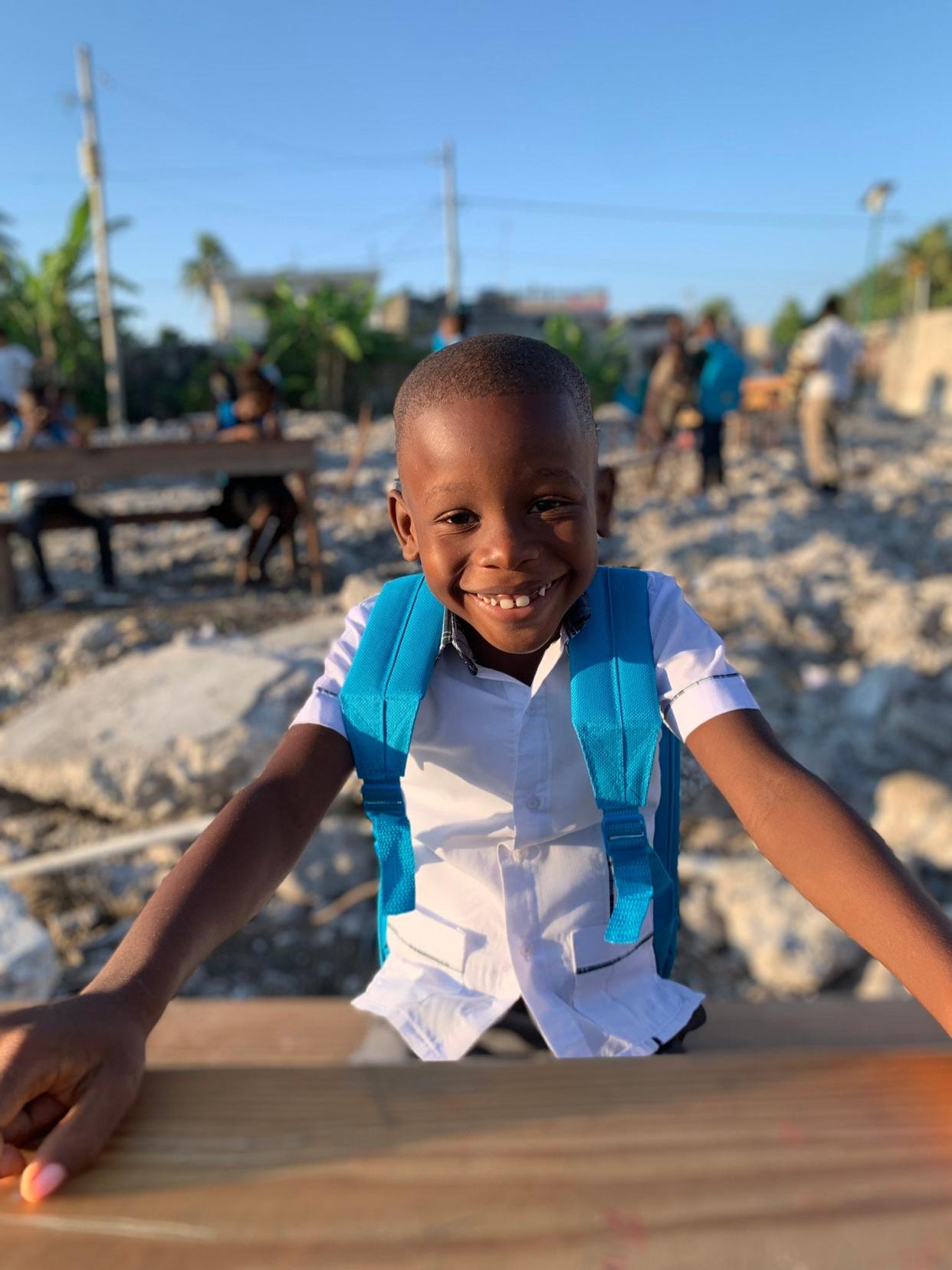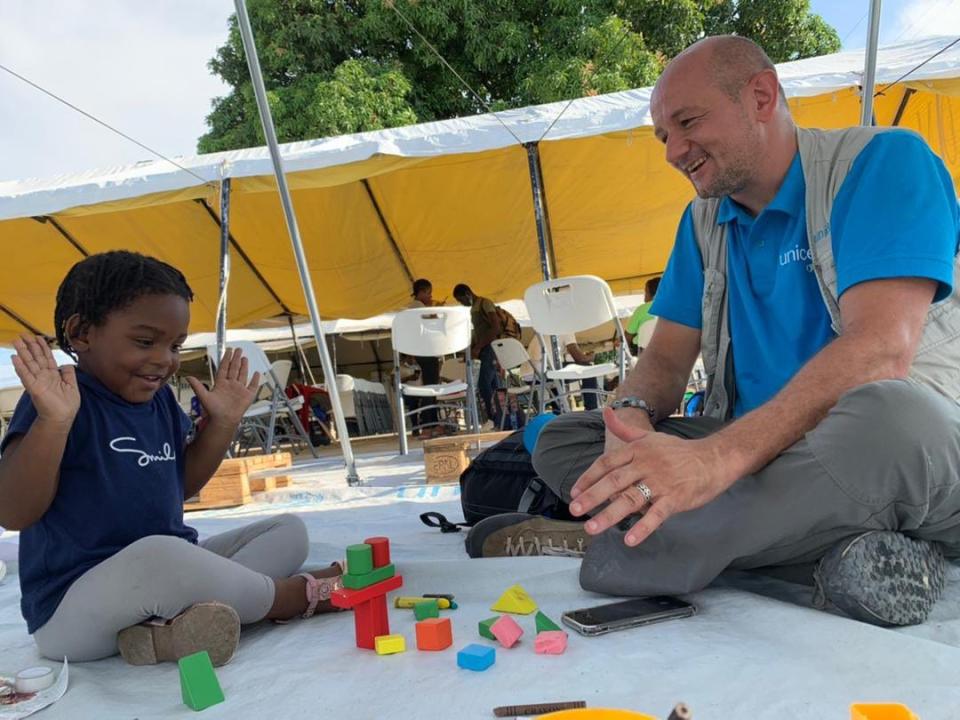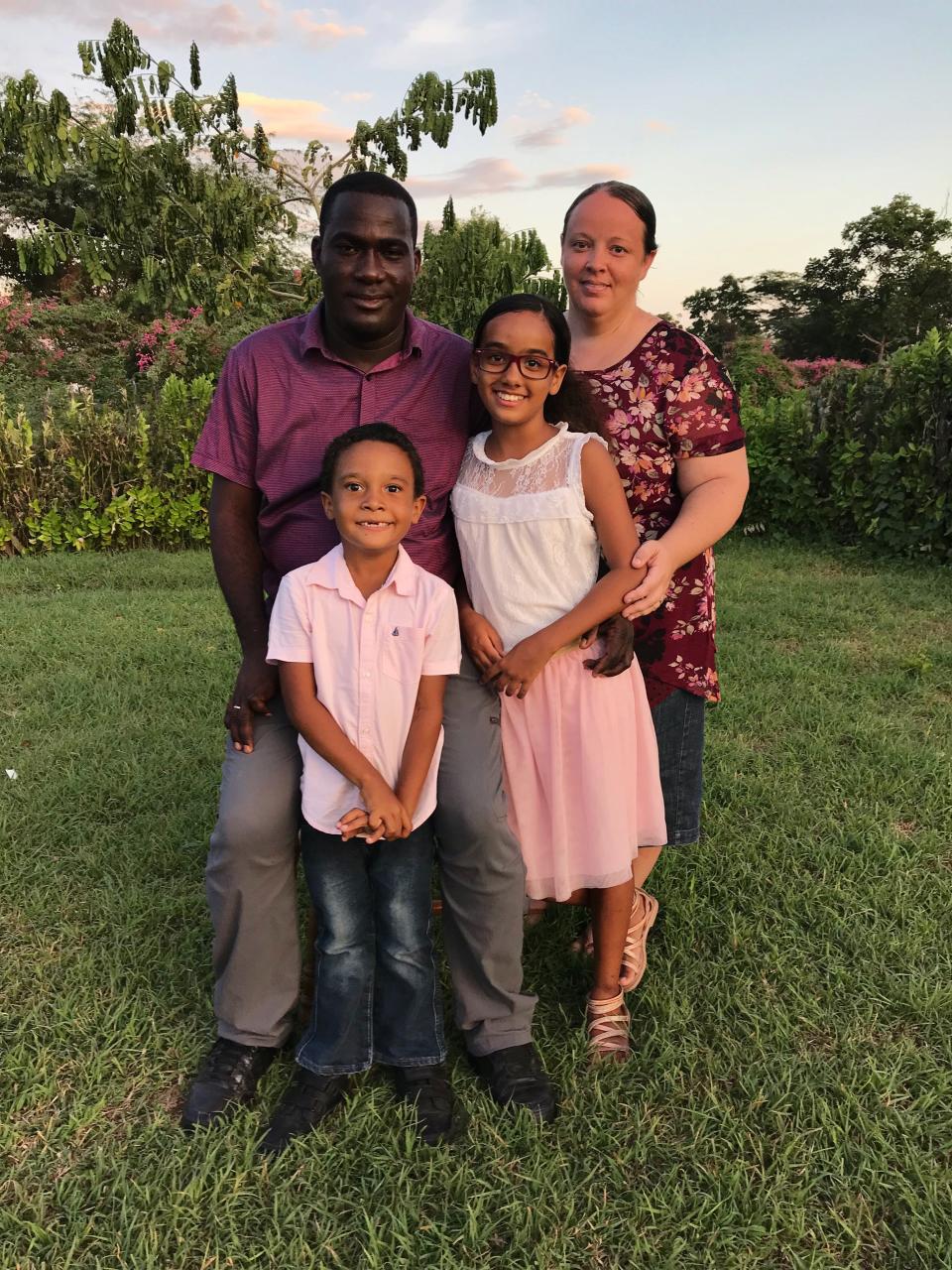Why take the risk? Aid workers go to Haiti for the kids, the future of exploited country

Christian missionaries aren’t just building orphanages and schools in Haiti to help children read. They say they’re beating back voodoo and witchcraft with Bible verse.
"Haiti is the first country officially dedicated to the devil,” said Lenord Bonnegre, who was born in Haiti, where he met his wife, a Holmes County resident.
The couple launched Restoring Lives Ministry and are eager to get back to Haiti, where they live, to serve the people through church, pastoral training and youth education.
“It is more of a spiritual battle in Haiti than a political one,” Bonnegre said. “That has caused many Haitians to become violent, cruel, threatening and brutal."
The Haitian abduction of 17 missionaries with Christian Aid Ministries in Holmes County last month has put an international spotlight on the poorest country in the western hemisphere, where a seemingly never-ending cycle of natural, political and economic disasters tests the resilience of a Caribbean nation and the resolve of international donors and relief workers.
On Monday — day 24 of the hostage crisis — Christian Aid Ministries posted its daily update calling for more prayers as the nonprofit group hands the situation over to god. The organization has said it has no communication with the hostages or their captors.
"The families of the hostages continue to face long days of waiting for news about their loved ones," the organization said. "The hostages no doubt face long days as well, wondering when they might be released."
The government of Haiti is perpetually crippled. Leaders are exiled or assassinated. Haitians revolt or boycott elections following U.S. intervention. Destabilizing military coups and violent rebellions threaten the livelihoods and lives of Haitians who rely heavily on the goodwill of the international community to survive waves of catastrophic hurricanes and earthquakes.
The Haitian government struggles to provide basic security. In the past few months, humanitarian groups say gangs have targeted routes for transporting scarce fuel, water and other supplies to increasingly kidnap domestic and foreign aid workers, with more woman and children taken in the first seven months of 2021 than in all of 2020.
Still, humanitarian and religious groups, including some who would not speak publicly for this article for security reasons, say saving lives and souls is why they rush to Haiti like firefighters into a burning building.
The U.S. State Department did not comment for this story.
Historical exploits
The Taíno tribe of the Caribbean Arawak people thrived for 1900 years in Latin America and on Hispaniola before the arrival of Christopher Columbus in 1492 marked the beginning of their near extinction.
Once cleared of indigenous people, the island of Hispaniola — what is now Haiti and the Dominican Republican — was repopulated by African slaves who led the world's only successful revolt, securing their freedom and establishing the independent republic of Haiti in 1804.
French enslavers recognized Haitian independence in 1825 after demanding the island pay the equivalent of $21 billion today. The heavy debt, which Haitian nationals and historians say deprived the fertile Caribbean country of needed physical and social infrastructure investments, was finally repaid in 1947.
The past century of Haitian self-governance is bookended by presidential assassinations and filled with cascading natural disasters and foreign intervention by the United States.
A U.S. Marine occupation 100 years ago seized the assets of Haiti's National Bank and rewrote the country's laws to allow foreigners to own land, cornering sugar, pineapple and other markets.
Today, nearly 30% of youth are unemployed. Haitian parents who haven't fled in the waves of refugee migrations place hundreds of thousands of their children in the indentured servitude of other families, unable to financially support their own.
The rise of youth gangs is exacerbating long-standing water and fuel shortages, said Laurent Duvillier, regional chief of communication for UNICEF in Latin America and the Caribbean.
Duvillier is stationed in Panama and intimately familiar with Haiti, where he covered political violence 20 years ago as a motorcycling freelancer for Le Soir, a French-language Belgian daily newspaper..
“Water is life,” he said of efforts to prevent fatal diseases like cholera. And UNICEF guarantees gasoline for generators that keep life-support equipment running in hospital maternity wards.
But the $15-a-gallon gasoline, driven up by global demand and weak infrastructure on the island, is trapped in a warehouse after unloaded by ship in Port-Au-Prince, the capital of Haiti. Like the roads that relief workers and missionaries brave to reach the earthquake ravaged south, where 70% of schools have been decimated, gangs control the route to the warehouse, often holding for ransom anyone who dares to fetch the fuel.
For the children and the future
UNICEF has been sounding the alarm on Haiti for years.
Amid recent political unrest and increased kidnappings that force organizations like Christian Aid Ministries to pause their work in Haiti these past couple of years, UNICEF deployed its 100 workers on the ground in Haiti to assist with earthquake relief in the south, just weeks after the assassination of the country’s president.
Instead, UNICEF workers found themselves consumed by the arrival of thousands of refugees flown back to Haiti by the U.S. government after trying to cross the Mexico border, where they sought political asylum, Duvillier said.
Duvillier returned from Haiti last month after a three-week trip, unable to shake the image of an 8-year-old boy named Manuel.
“He was so excited. I could see on his face the light,” Duvillier said in an interview on WhatsApp, a free text and voice messaging service that relief workers in Haiti use to alert others to gangs, shootings and roadblocks.
“You can see the face of a child when he is happy,” Duvellier said. “I said, ‘Why do you want to go back to school? ’Life is easy when you don’t go to school. You’re on holiday. So, why do you want to go back to school?’
“And he said, ‘I need to go back. I want to become a civil engineer. I want to build earthquake-proof buildings in the future so no one will die.”
It’s the children, and with them the fate of the Caribbean nation, who are suffering, he said.
“We started providing support at the airports upon arrival and we realized there were many children below the age of 10, and many of them were actually born in Chile or Brazil. They didn’t speak a word of Creole (the native language of Haiti) and actually had only Chilean and Brazilian passports,” Duvillier said.

“That creates complications for the future of what this child will be — sent back to a country they don’t know or speak the language. How can you integrate those kids back into the school system?” he asked.
This is all part of the cycle that, with less intervention by the U.S. government and more targeted humanitarian aid, must be broken for Haiti to ever emerge as a self-sustaining, peaceful and vibrant nation, aid workers and scholars say.
“What’s happening in Haiti is a domino effect,” said Duvillier, who was the second international journalist to document the national rebellion in Haiti 20 years ago. “The problem is that in most countries, the domino stops at some point. In Haiti, is doesn’t."
‘Missionary life is not a life of luxury’
Some organizations, including UNICEF, prohibit workers from bringing their families while working with locals. Other organizations are staffed by missionaries who permanently relocate to Haiti.

It is their home. And they are not safe there.
"Missionary life is not a life of luxury," Lenord Bonnegre said. "It is never easy to find people willing to 'leave it all behind.' But there are those willing to make the sacrifice it takes because they see the necessity to reach those in hard conditions. When people are aware of the needs they are ready and willing to help.
"Haiti has been in deep turmoil for several years," he continued. "Port-au-Prince has become increasingly unsettled in the past several months, which has led to daily kidnappings. If a missionary decides to go to Haiti, I urge him to gather lots of information, be very careful and vigilant. Be sure you are called to work in missions and are trained in your calling. Go with a willingness to learn."
Workers keep constant contact on WhatsApp and two-way radios. They travel and live in clusters to keep an eye on each other, Duvillier explained.
“It’s not the entire country that is under control of the gangs,” Duvillier said. But the threat is widespread.
“If you leave your home, there is no safe space for you. You can be kidnapped today in Haiti, not just you, but more worryingly your children, and your relatives — at any given time of the day or night, anywhere. It can happen at home. It can happen at school. It can happen in the streets.”
While in Haiti last month, Duvillier was alerted on WhatsApp while traveling.
“Boom. We see a notification on the same road we were on, suddenly a shooting took place,” he said. He told the chauffeur to take a pre-planned alternate route, of which there are few because of the complicated road system in Port-au-Prince.
“We go around,” he said. “But that doesn’t mean that we’re the only one doing that. It creates traffic jams which eventually expose you.”
“You’re stuck,” he said. “You don’t have a way out.”
Workers remain inspired, however, by the resilience of a once enslaved nation, where Voodoo dominates religion, the relics of slavery and foreign intervention are ever present as locals protest in the streets for the release of the 17 captive missionaries.
“Many people internationally, including donors, feel that it’s a hopeless case —'there’s nothing we can do about Haiti,' ” Duvillier said. “It’s actually the opposite. I have seen everything but that. I’ve seen kids in the southern part of the country who are affected by the earthquake eager to go back to the classroom. I’ve seen parents and teachers begging to rebuild schools.”
Kevin Lynch with the Wooster Daily Record contributed to this report. Reach Doug Livingston at dlivingston@thebeaconjournal.com or 330-996-3792.
This article originally appeared on Akron Beacon Journal: UNICEF, missionaries, relief and aid workers risk their lives in Haiti

